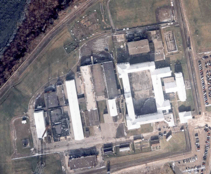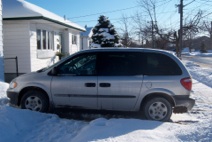Serving the Community:
Inmates & Families
Serving the Community:
Inmates & Families
CBP 2009

CASE: Grace Marks is a 24-year old woman who presents to your walk-in clinic in Oshawa for a cough. During the interview, she appears tired and upset. On inquiry she mentions that she is now alone in providing care to her 6-year old daughter, as her husband, Tom, has recently been incarcerated and is now serving a 3-year prison sentence in Joyceville Institution for robbery. Tom who worked in car manufacturing was the only source of income for the family.
Bridge House is a short-term shelter for women who are visiting their loved ones in prison in the Kingston area. It also provides long-term shelter for women who are in transition or homeless. Bridge House has seven bedrooms (with multiple beds in each) and can accommodate upwards of 20 women and their children during busy periods, especially on weekends and in the summer. Beds cost $15 per person, per night, and pre-bookings can be made over the telephone.
Bridge House is a safe, caring place for women to stay during a period in their life marked by stress. Residents have use of a kitchen, laundry machine, and telephone. In addition to providing low-cost accommodations, Bridge House offers 24/7 counselling over telephone, group counselling, transportation to correctional institutions, activities for children of families, and youth programs. Transportation to Joyceville is provided in the Bridge House van for $25 per person. They also operate weekly Supper Club for community members and alumna of Bridge House at no cost.
Bridge House also understands the health needs of its population, and provides condoms on request to women. Of greatest concern is hepatitis and HIV, particularly for private conjugal visits. Women with an incarcerated loved one also face stress, anxiety and depression. Although Bridge House does not provide psychiatric care, they offer general counselling services. Amongst the continuum of preventative health care, Bridge House provides primary prevention.
To provide a safe environment for all residents, no men are allowed on the premises. Drugs and alcohol are forbidden and smoking indoors is prohibited. There is a midnight curfew, and Bridge House has staff on hand round-the-clock who are trained to diffuse any situations. Although Bridge House does not provide the same level of security as a traditional women's shelter, they do not have any problems with safety of its residents and staff.
Bridge House operates as a not-for-profit organization and is funded by the City of Kingston, rental fees, and private donations. Their annual budget is $250,000, and they provide more than 2,000 shelter stays annually. Physicians should know about this organization so they can tell patients who may have a loved one in prison that it is possible to visit their husband or partner on a budget, without spending a large sum of money.
THE CASE REVISITED: Grace learns about Bridge House through your family practice. She recalls Tom had mentioned Bridge House before, but he was concerned that it wasn’t safe. After your reassurance that Bridge House provides a safe, supportive environment, Grace makes a telephone booking and stays in Kingston for two days. They take the Bridge House van to Joyceville to visit Tom, who is delighted to see his family. In a follow up visit at your clinic 4 weeks later, Grace is in good spirits after knowing that her husband is well, and tells you that she has found a job to help support her family.
Bridge House
Thursday, February 3, 2005
Bridge House
“a home away from home”


Top: Joyceville Institution, near Kingston, Ontario.
Bottom: Bridge House van, providing economical transportation for families of inmates.